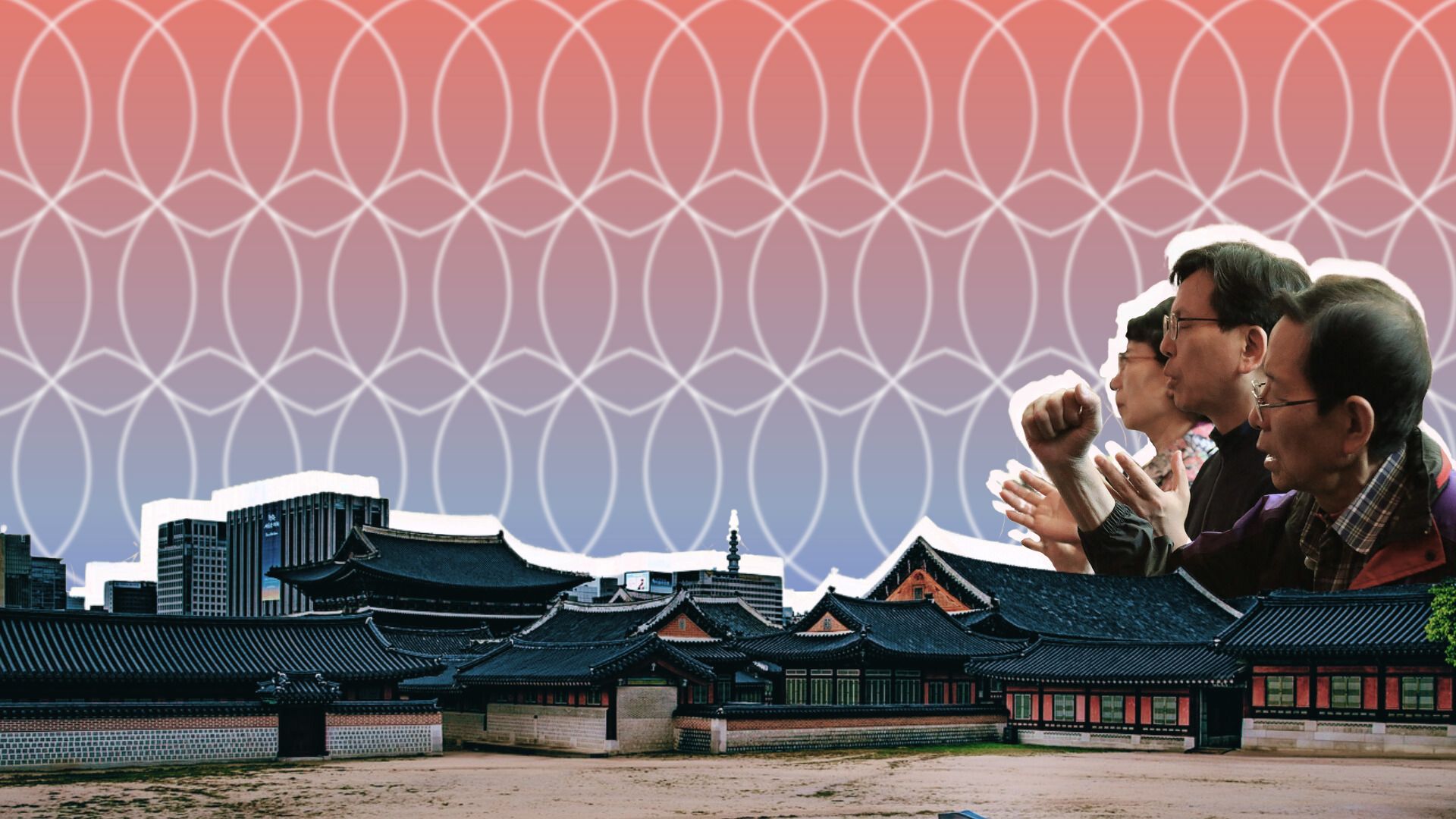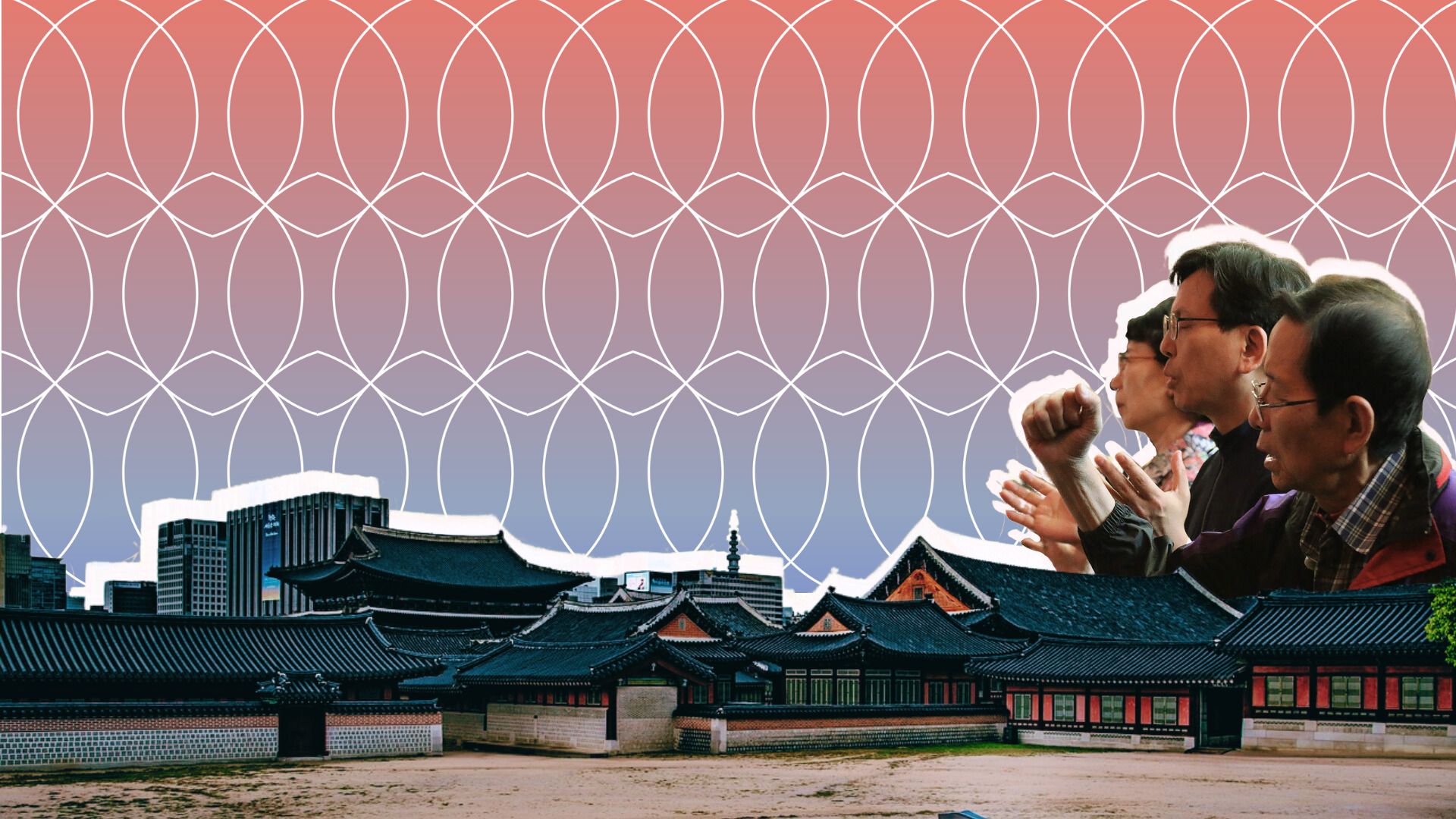Why should the Fourth Lausanne Congress take place in Korea? In God’s sovereignty, what would be a reason for hosting 5,000 participants in-person and another 5,000 leaders online from 200 nations in South Korea? Where is God’s concern on the Korean peninsula? And to what is the Lord giving attention?
Needs in North Korea
While some may think of K-pop and the Korean Wave when it comes to Korean Peninsula affairs, it is North Korea that most often dominates international headlines. Its leadership is intent on advancing its military power and political influence, and it is building stronger alliances with China, Russia, and other non-aligned nation-states. North Korea’s leader, Kim Jong Un, recently revised North Korea’s constitution to redefine South Korea as its ‘‘main enemy’’. In doing so, it has reversed its decades-long position on reunification with South Korea via peaceful means and has instead stated its willingness to engage in war with the South and its allies if necessary.

Geopolitical troubles and war around the world, such as the volatility between Ukraine and Russia, Palestine and Israel, and the tensions between China and Taiwan, create an impetus for military escalation in other regions, including the Korean peninsula. At the same time, the North-South divide is representative of many of the ideological, religious, ethnic, and territorial divisions present internationally, which can accelerate into violence at the mildest provocation. At such a precarious time, what do we need to know about North and South Korea? What can the church do to mitigate the current challenges? And what can we do together at the Lausanne Congress in South Korea?
Gathering
Peace and Reconciliation in the Korean Peninsula: A Pre-Congress Consultation
This pre-Congress consultation aims to gather passionate individuals committed to healing and reconciliation in the Korean Peninsula. Join us at the Incheon National University on September 20th and 21st, 2024. If you have any questions please email to pnrprecongress@gmail.com.
First, it is important to understand that North Korea faces internal problems that are chronic–long-running and serious problems that are rarely an ‘‘emergency’’. As a result, the needs of its people are so often pushed to the margins of international attention, especially while crises in other regions claim the headlines. The latest United Nations Needs and Priorities Report on North Korea (2020), identifies 5.5 million people as ‘‘most vulnerable’’, namely children under five and pregnant and lactating women. In addition, the UN’s People in Need Index (PiN) calculates that 10.4 million people, out of a national population of 26 million, need urgent nutrition and medical support. The estimated number of Christians in North Korea is up to 400,000, according to Open Doors, yet North Korea consistently tops the index for religious persecution globally. Christians in North Korea therefore do not understand the hope and peace Jesus can bring to this troubled country.
Second, the North-South Korean divide is a historical issue that was created and perpetuated by the complexities of the Cold War, post-colonialism, contemporary geopolitics, and inter-generational trauma. Unlike Germany, which was divided peacefully and without bloodshed, the inter-Korean divide resulted in over 2.5 million deaths during the subsequent Korean War (1950–1953). This violent divide, which saw damage to the collective psyche of the nation, has gone well beyond a Cold War divide. Before North Korea can be reached with the gospel, the church must be an instrument of peace and shalom, of bringing reconciliation and peace on the peninsula. The church must take the words of Paul in Colossians as a command for the proclamation of the gospel, of reconciling to Jesus all things, whether things on earth or things in heaven, by making peace through his blood, shed on the cross (Col 1:20). Before the proclamation, there must be a movement for the peace and reconciliation of Christ, just as the church is called into a ministry of reconciliation (2 Cor 5:18-19).

A Critical Time for the South Korean Church
The Fourth Lausanne Congress is being held in South Korea, where there is now a decline in church membership, especially among the younger generations. At the same time, the South Korean church is increasingly the target of criticism and derision in the media and in popular culture. In South Korean society, interest in inter-Korean unification is at an all-time low, while public discontent around the economy, social inequalities, and political representation has soared in recent years. As a central stakeholder in the challenges North Korea presents, South Korean society, and the church in particular, need prayer for the capacity to continue working constructively on North Korea-related issues, as well as prayer for the socio-political consensus to support such efforts.
A wide range of public surveys show that the younger generation of South Koreans, including Christians, have little regard for the plight of the people of North Korea. The anti-communist antagonism towards North Korea that was a feature of the post-Korean War and authoritarian government years in South Korea (1950s–1980s) has evolved into a sense of indifference towards their neighbors in the North. However, when Koreans see that non-Koreans have a heart and are praying for North Korea, they are often ashamed and challenged. Often, we hear, ‘‘How can these people who have no blood relations with North Koreans, give their lives to the people of North Korea?’’ The encounter with non-Koreans and diaspora Koreans praying and giving their lives for North Korea is a witness to South Koreans that there is a need to discover a sense of compassion for their neighbors in the North.

A Call for Collaboration
The geopolitical status quo and the persistent tensions in inter-Korean relations (even during periods of rapprochement) have led to only limited success in South Korea’s efforts to overcome the inter-Korean conflict. Moreover, with North Korea’s public declaration of South Korea as enemy number one, it is worth considering how greater international cooperation between South Korean churches and the global church might provide opportunities for innovation in approaches that facilitate a breakthrough in this intractable conflict. Churches in other contexts of conflict and dictatorships have often been at the frontline of peacebuilding and societal transformation–there are many great lessons to be shared.
David Bennett, in the Lausanne article, ‘‘Why Seoul 2024,’’ states, ‘‘We want to see an acceleration of collaborative initiatives and collaborative action teams that can function on the ground to address the existing gap and seize current opportunities with the goal of fulfilling Jesus’ Great Commission to make disciples of all the nations, and to teach these disciples to embrace and live out everything Jesus taught.’’
The Korean peninsula is a prime case of a local situation having ramifications for the global context. For shalom to take place, to reconcile all things by making peace through his blood shed on the cross, it will take the whole global church working together towards a resolution. As we gather in Songdo (Incheon), Korea, this is a God-given opportunity to pray, to enter into dialogue and to collaborate for both North and South Korea. It is also an opportunity to pray that the gospel that brings enemies into reconciliation with one another can travel into conflicts between Ukraine and Russia, Palestine and Israel, China and Taiwan, and further afield. As over 10,000 leaders from 200 nations converge on South Korea, it is time for the church to watch and pray, to see and hear what God is doing around the world and to join God in his global purpose.
Peace and reconciliation on the Korean peninsula will be the focus of the Pre-Congress Consultation from Friday, 20 September to Saturday, 21 September, which begins with a trip to the Demilitarized Zone (DMZ). The North Korea Interest Group will meet from 24–26 September during the congress. Both gatherings will feature experts and practitioners who together have of over 70 years of accumulated experience inside and for North Korea.


